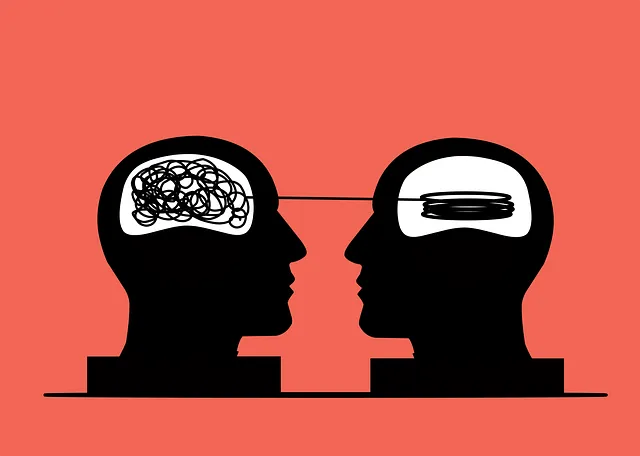The Kaiser Permanente Mental Health Access Center in Broomfield is dedicated to swift and effective crisis intervention through trained professionals who assess and address immediate distress, focusing on individual safety and stability. They empower individuals with self-care practices like mindfulness and cognitive-behavioral strategies to prevent future crises. The center offers evidence-based programs, education on early detection, and supportive community initiatives to revolutionize mental healthcare accessibility, fostering resilience and holistic healing.
“In times of crisis, effective intervention can make a profound difference. This article guides you through essential strategies and resources for managing critical situations. We explore key aspects of crisis intervention, focusing on the role of Kaiser Permanente Mental Health Access Center in Broomfield as a vital support system. From understanding crisis dynamics to immediate response techniques and post-crisis recovery planning, this comprehensive guide equips readers with tools to navigate challenging scenarios. Discover how proactive measures, including early detection strategies, can help individuals and communities thrive despite adversity.”
- Understanding Crisis Intervention: A Brief Overview
- The Role of Kaiser Permanente Mental Health Access Center in Broomfield
- Identifying Signs and Triggers: Early Detection Strategies
- Immediate Response Techniques for Critical Situations
- Post-Crisis Support and Recovery Planning
Understanding Crisis Intervention: A Brief Overview

Crisis intervention is a critical component of mental health support, offering immediate and targeted assistance during times of intense distress or impending danger. At the Kaiser Permanente Mental Health Access Center Broomfield, professionals are trained to provide effective crisis intervention strategies tailored to individuals’ unique needs. This approach involves a rapid assessment of the situation, focusing on ensuring safety and stability for the person in crisis.
Understanding the underlying causes of crises is essential, as it enables the development of appropriate interventions. Common triggers include severe stress, anxiety, trauma, or exacerbation of pre-existing mental health conditions. By promoting self-care practices and effective stress management techniques, such as mindfulness and cognitive-behavioral strategies, the center equips individuals with tools to prevent depression and navigate future challenges.
The Role of Kaiser Permanente Mental Health Access Center in Broomfield

The Kaiser Permanente Mental Health Access Center in Broomfield plays a pivotal role in addressing mental health challenges within the community. As a dedicated resource, it offers comprehensive services tailored to meet the unique needs of individuals struggling with various forms of mental illness. The center’s primary mission is to bridge the gap between those seeking support and evidence-based treatment options, thereby fostering improved mental well-being.
Through innovative programs and initiatives, such as Mental Illness Stigma Reduction Efforts, the access center strives to create a supportive environment where individuals can openly discuss their experiences without fear of judgment. Moreover, it provides training opportunities for mental health professionals, equipping them with essential tools for effective risk assessment and intervention strategies. By promoting positive thinking and open dialogue, the Kaiser Permanente center aims to revolutionize mental healthcare accessibility and enhance overall community resilience.
Identifying Signs and Triggers: Early Detection Strategies

Identifying signs and triggers is a critical step in crisis intervention, and the Kaiser Permanente Mental Health Access Center Broomfield plays a vital role in educating individuals on early detection strategies. Recognizing the subtle cues that signal a potential mental health crisis can make all the difference in preventing more severe outcomes. This involves being attuned to changes in behavior, mood, or thought patterns—signs that might be easily overlooked but are significant indicators of distress.
The Mental Wellness Podcast Series Production offers valuable insights into these subtle shifts, while Self-Awareness Exercises and Mental Wellness Coaching Programs Development provide individuals with tools to monitor their emotional well-being. By promoting self-reflection and fostering an environment where discussing mental health is normalized, these resources empower folks to take proactive measures before a crisis arises. Early intervention is key; it allows for timely support and the development of effective coping strategies.
Immediate Response Techniques for Critical Situations

In critical situations, immediate response techniques are vital for crisis intervention strategies. The Kaiser Permanente Mental Health Access Center in Broomfield emphasizes swift action to ensure the safety and well-being of individuals experiencing mental health crises. Trained professionals employ a range of evidence-based practices, including active listening and de-escalation techniques, to calm individuals and assess their needs. By focusing on the present moment and building rapport, these interventions aim to stabilize emotions and prevent further deterioration.
Mindfulness meditation is a key component often integrated into crisis intervention programs. Teaching individuals to remain grounded in the here and now can help manage intense emotions and reduce anxiety. Additionally, mental wellness coaching programs development tailored by the Kaiser Permanente center offers personalized support, empowering individuals with coping strategies for long-term mental health maintenance. Mental health education programs design to educate both victims and their support networks about recognizing warning signs and appropriate intervention methods further contribute to a holistic approach, fostering a community that promotes mental wellness.
Post-Crisis Support and Recovery Planning

After an individual has successfully navigated a crisis, providing sustained support and facilitating recovery is paramount. The Kaiser Permanente Mental Health Access Center in Broomfield offers specialized services tailored to this critical phase. This includes ongoing therapy sessions, peer support groups, and case management to help individuals integrate back into their communities and pursue long-term wellness. By combining evidence-based practices such as Compassion Cultivation Practices and Mental Health Policy Analysis and Advocacy, the center ensures that emotional healing processes are holistic and community-driven.
Recovery planning is a collaborative effort that involves setting realistic goals, identifying potential triggers, and developing strategies to manage challenges. The center’s approach emphasizes resilience building, encouraging individuals to cultivate coping mechanisms and build strong support networks. This proactive support system is designed to prevent future crises and promote sustained mental well-being.
In conclusion, crisis intervention strategies play a vital role in supporting individuals during challenging times. The article has explored various aspects of this process, from understanding the concept to post-crisis recovery planning. The Kaiser Permanente Mental Health Access Center in Broomfield serves as a crucial resource, offering specialized support and early detection strategies for mental health crises. By identifying signs and triggers promptly and employing immediate response techniques, we can enhance our ability to assist those in need. Equally important is providing post-crisis care and encouraging recovery planning, ensuring individuals have the tools and resources necessary to rebuild and move forward.






